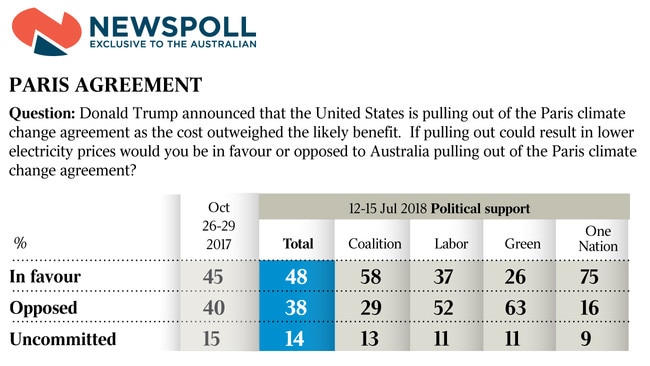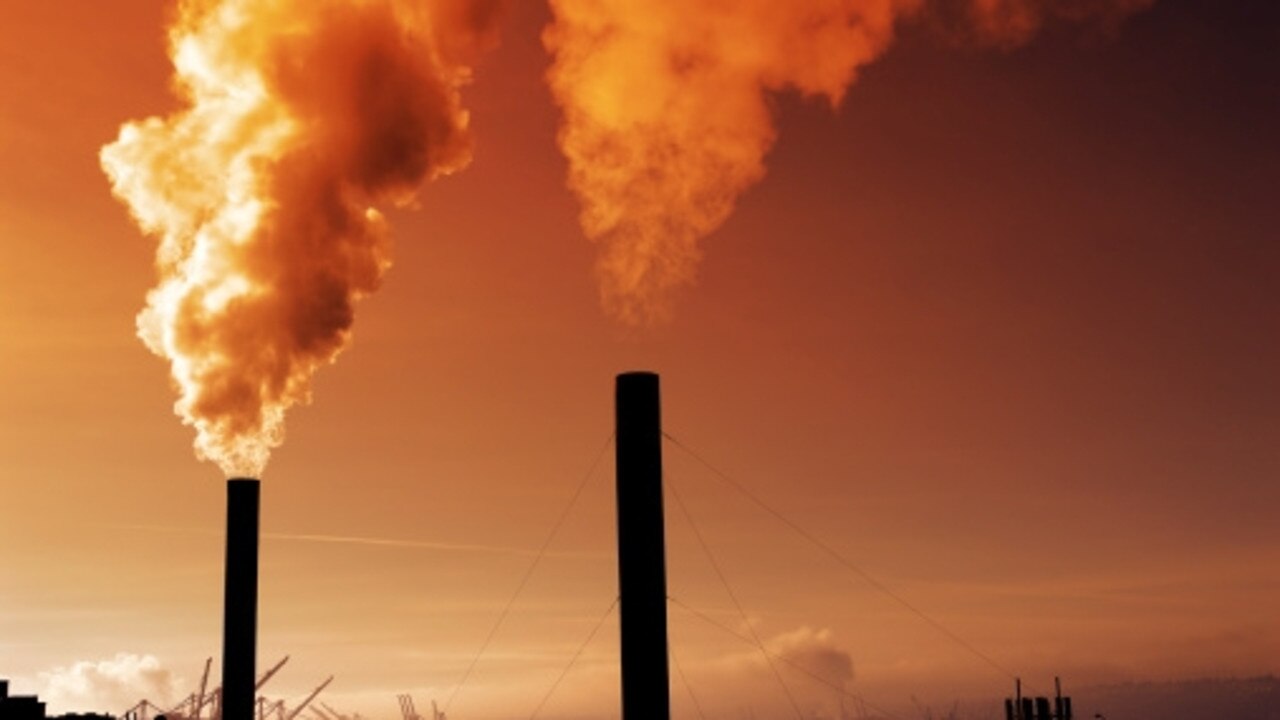Coalition’s power pricing policies finally gaining traction with voters
Malcolm Turnbull is winning over voters with his claims the government can deliver lower priced and more reliable power.
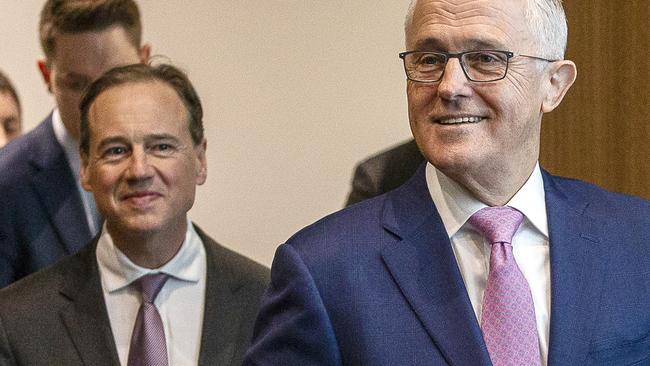
Malcolm Turnbull is winning over voters with his claims the government will force down power prices, with a special Newspoll showing the Coalition ahead of Labor as the most trusted party to deliver lower priced and more reliable power.
However, support for Australia to pull out of the Paris climate change agreement is also hardening as the electorate becomes increasingly concerned about energy costs, with almost two thirds ranking it ahead of emissions reduction as a priority for government.
The people have spoken, it seems. Get out of Paris! https://t.co/reaunhMPwq
— Tony Abbott (@TonyAbbottMHR) July 16, 2018
The poll on energy prices and climate change, conducted for The Australian between July 12 and 15, shows a majority of voters backed the government over Labor on managing energy.
The poll, showing the Coalition leading 40 per cent to 34 per cent, marks an eight-point turnaround in voter sentiment since May when a shock Newspoll showed more people believed Labor would be better at managing Australia’s energy supply and power prices than the Coalition.
The May poll was used in a Coalition party room stoush to run down the government’s national energy guarantee and label it electoral poison because of the perception it was pro-renewable. Energy Minister Josh Frydenberg has since argued that the government’s efforts had forced wholesale power prices down by 25 per cent over the past year with retail prices also starting to show downward movement. The latest poll shows Labor, Greens and One Nation voters being won over to the government’s argument rather than sceptical Coalition voters.
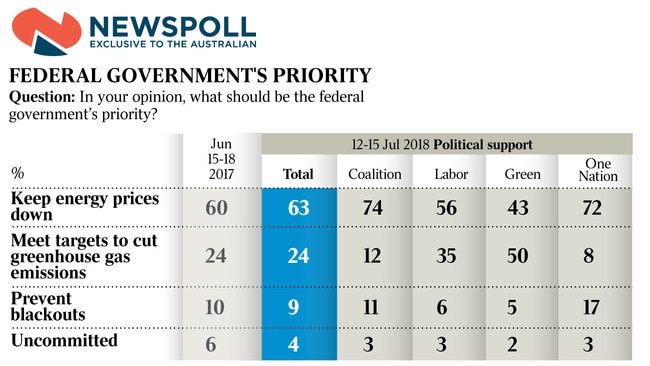
Labor voters’ support for the government rose two points to 11 per cent while support for Mr Shorten fell from 73 per cent to 69 per cent. Among Greens voters there was a five-point rise to 20 per cent in backing for Mr Turnbull over the issue.
The government’s ability to win over One Nation voters has been significant, with a lift of 12 points to 42 per cent in support for the Coalition’s efforts, compared to 23 per cent for Labor.
Mr Frydenberg told The Australian he believed the country had now “turned the corner” on prices.
“When it comes to energy policy, the Turnbull government has a laser-like focus on reducing power prices,” Mr Frydenberg said. “Everything we do is about putting the consumer first and helping create jobs across the economy. We have now turned the corner on prices, following a series of reforms to network, wholesale and retail energy markets. Wholesale power prices are down about 25 per cent from the same period last year, and retail prices came down on July 1 in Queensland, NSW and South Australia.”
Mr Frydenberg said this was in stark contrast to the record under the Rudd-Gillard-Rudd governments when prices went up each and every year. “The combination of the national energy guarantee and the recent findings and recommendations of the ACCC, which are being carefully considered by government, provide a strong plan towards lower power prices for Australian families and businesses,” he said.
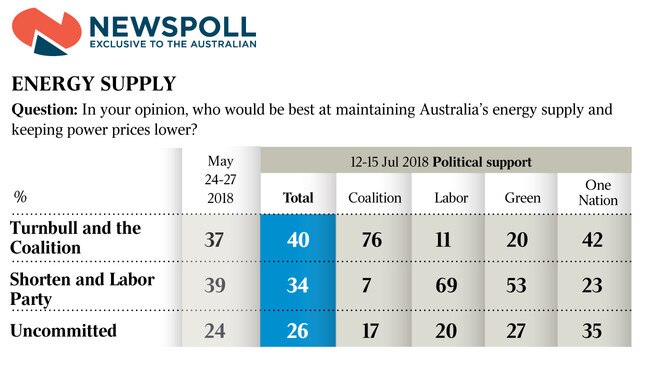
Tony Abbott recently upped the ante in his rhetoric against Mr Turnbull’s energy policy stance, claiming it was about time Australia followed Donald Trump’s lead and pulled out of the Paris Agreement on climate change targets, which he had signed up to as prime minister. Support for Mr Abbott’s position has grown since October last year with a three-point rise to 48 per cent of voters claiming to be in favour of withdrawal if it led to lower power prices.
Surprisingly a quarter of Greens voters and 37 per cent of Labor voters believed that cheaper power prices were more important than the climate change agreement to reduce emissions and were in favour of withdrawing.
The total opposed fell two points to 38 per cent with One Nation voters significantly more hostile to the accord with 75 per cent believing Australia should pull out. Opinion was split among Coalition voters, however, with 59 per cent in favour of tearing up the agreement but 29 per cent opposed to the proposition.
Almost two thirds, 63 per cent, of voters also claimed that cheaper power should be governments’ priority with only 24 per cent believing reducing emissions should take precedence.
